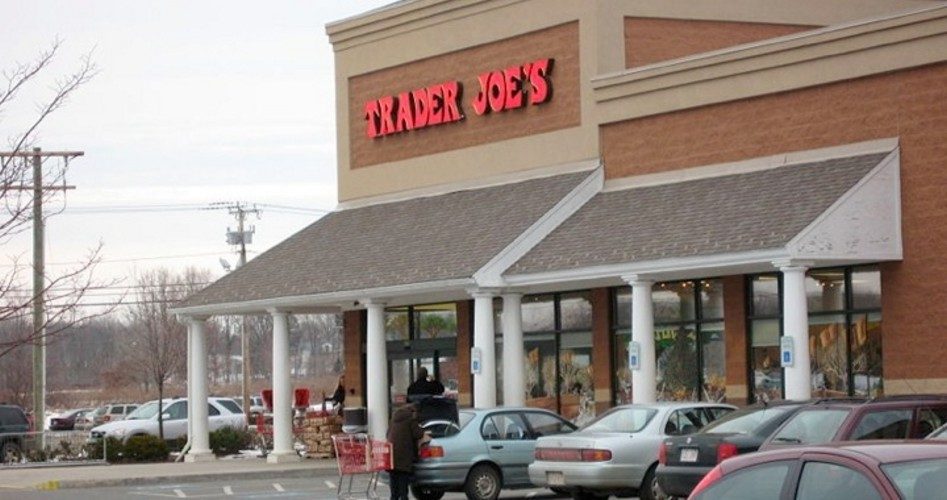
A certain store won’t be opening its doors in Portland, Oregon — it seems it would attract the “wrong kind” of people. No, it’s not a strip club or porn shop, or even a pawn shop. It’s Trader Joe’s, the unique grocery chain famous for offering health foods and exotic fare at reasonable prices. So what’s the problem?
It would attract too many white people.
Oh, it wasn’t put that way, of course. The most visible critics — activist group the Portland African American Leadership Forum (PAALF) — said in a letter to the local government that the store would “increase the desirability of the neighborhood” for “non-oppressed populations.”
And this “oppressed” group succeeded in getting Trader Joe’s to scuttle the project.
I guess being oppressed ain’t what it used to be.
The grocery store was to be the anchor of larger development, as Michael Lofti at BenSwann.com explains:
The Portland Development Commission [PDC] offered a substantial discount to the grocery chain for a two acre parcel of land that appraised for $2.9 million. The land, which sat undeveloped for years, was offered to the chain for $500,000 in an attempt to bring high paying jobs and prosperity to the neighborhood. The construction project, which was to include a [sic] two large anchor buildings and 10 retail shops, was promised to an African American owned construction company.
But the PAALF and other Portland activists would have none of it. As PAALF also wrote, “Given the long-standing list of promises made, and yet unfulfilled by the PDC to prevent community displacement, PAALF is and will remain opposed to any development in N/NE Portland that does not primarily benefit the Black community.” So I suppose the people have spoken.
Or have they? The Oregonian tells us:
All of my neighbors were excited to have Trader Joe’s come here and replace a lot that has always been empty,” said Nghi Tran, who has lived a block away from [sic] 15 years. “It’s good quality for poor men.”
Tran said he didn’t think PAALF had the right to represent the neighborhood. “They don’t come to the neighborhood cleanups,” he said. “They don’t live here anymore.”
And this seems to be consensus. As the paper wrote on the day Trader Joe’s decided to pull out:
People who live near Northeast Martin Luther King Boulevard and Alberta Street say the grocer would have brought life to a lot that’s been vacant for 20 years.
… “There are no winners today,” said Adam Milne, owner of Old Town Brewing Co., which is just north of the proposed Trader Joe’s property. “Only missed tax revenue, lost jobs, less foot traffic, an empty lot and a boulevard still struggling to support its local small businesses.”
… “Was there a vote? This should be reevaluated,” said Kymberly Jeka, an artist who lives a few blocks away. “This is not what the neighborhood people want. This is terrible.”
… Grayson Dempsey, an 11-year King resident who can see the vacant lot from her window, said … they [the PAALF] can’t stand up and say, ‘As residents of the King neighborhood, this is what we want.’ The residents of the King neighborhood want this to happen.”
… “We shouldn’t leave lots empty in the name of preserving the neighborhood,” she said. “Are we preserving the vacant lot history or do we want to bring it back to a vibrant neighborhood where people know their neighbors and feel safe walking around?”
By all accounts, Trader Joe’s would have been a good neighbor, too, having a reputation as one the highest-paying, most worker-friendly grocery chains. As Lofti also tells us, “New employees start out at $10-20/hr., supervisors make $45k-75k/yr. and store managers bring in six-figure salaries. Also, the company makes regular contributions to employee 401k accounts.”
But the PAALF, obviously, is of the Jesse Jackson school of social activism: They know what you want — even if you don’t. And, hey, don’t worry about whether or not they’re standing up for the little guy because they’re at least standing against the big guy. They also complained in their letter that the discount on the vacant lot “primarily benefits the Roski family [the developers], one of the richest families in the country. It secondarily benefits Traders Joes [sic], a national corporation.”
In a similar vein, local oil dealer Nate Hartley groused that black residents hardly ever get a piece of the pie when profit is made in Northeast Portland. He is quoted as saying, “Anyone who believes it’s about anything but the money is misinformed.” Okay….
And the problem is?
What you’re witnessing here is Marxist thinking. What other than money is this supposed to be about? It takes money to develop an area and bring products to the local population, and businesses make that investment only in the hopes of earning more money. As for benefits accruing to the Roskis and Trader Joe’s, who else but rich people can afford to purchase large pieces of land, even at discount prices, and devote $8 million to opening a business?
Yet the implication that such development benefits no one else is silly. Not only does the neighborhood get job opportunities, but also a greater tax base, more wonderful products offered locally, and one less blighted lot. I should also reiterate that a black-owned construction company was promised the building work.
So what more do these activists want? Should the “people” own the businesses and all share in the profits equally? Hey, there’s an idea. I wonder if that’s ever been tried before….
The lesson of this Portland debacle is that there are few things more dangerous than having zealous community activists in your neighborhood — except, perhaps, for electing them to office.



